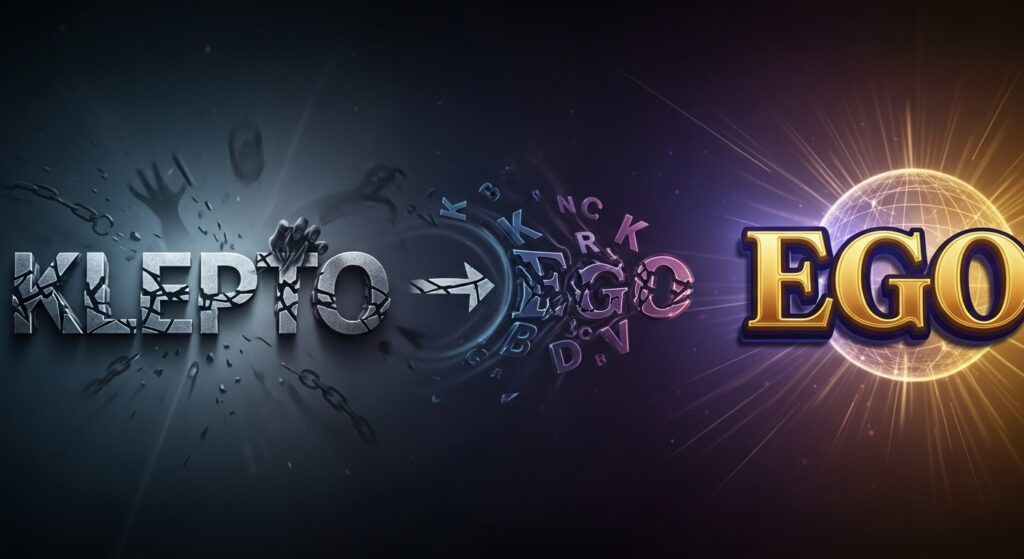In today’s rapidly evolving world, words are more than tools of communication—they carry histories, cultural meaning, and the power to shape thought. Among the most fascinating are terms that end with “klepto” or “ego.” These endings are not just linguistic quirks but reflect deep psychological, cultural, and social ideas.
This article explores the origins and meanings of words ending with klepto or ego, their place in language, and why they continue to capture attention in modern discourse.
What Does “Klepto” Mean?
“Klepto” comes from the Greek word kleptein, meaning to steal. In language, it often appears as a combining form, indicating a relationship to theft or compulsion.
-
Kleptomania: A psychological condition involving an irresistible urge to steal.
-
Kleptocracy: A form of government characterized by leaders who exploit national resources for personal gain.
Words ending with klepto often carry negative connotations, highlighting compulsion, corruption, or dysfunction. Yet they also reveal society’s fascination with power and morality.
What Does “Ego” Mean?
“Ego” comes from Latin, meaning I or self. In psychology, thanks to Freud and later theorists, ego represents the conscious sense of self, balancing instinct and morality.
Words ending with ego often emphasize personality, self-perception, or human behavior:
-
Superego: The moral conscience.
-
Alter ego: A second self or alternative personality.
-
Egomaniac: A person excessively preoccupied with themselves.
Unlike klepto, which leans toward social dysfunction, ego words often deal with identity, self-awareness, and human psychology.
Why Do Words Ending with Klepto or Ego Matter?
Language reflects culture. Words ending with klepto or ego tell us:
-
About society’s anxieties: theft, corruption, self-obsession.
-
About psychology: how humans explain impulses and personality.
-
About power: whether in the hands of individuals (ego-driven) or systems (kleptocracies).
These endings are more than linguistic flourishes—they mirror how we make sense of human flaws and complexities.
The Cultural Weight of “Klepto”
Take the word kleptocracy. It has become increasingly relevant in modern discussions of politics. Countries accused of kleptocracy are often those where leaders enrich themselves while neglecting the people.
Similarly, kleptomania shifted from being seen as simple criminal behavior to being understood as a mental health condition. This reflects a broader cultural movement toward compassion in understanding compulsion and illness.
Thus, words ending in klepto carry a dual role: describing wrongdoing but also highlighting social or psychological dimensions of behavior.
The Psychology of “Ego”
Freud made the ego central to psychology, placing it between the id (instincts) and superego (morality). In modern times, however, ego has expanded into everyday speech.
We describe:
-
Ego boosts when someone gains confidence.
-
Ego clashes when personalities collide.
-
Big egos when self-importance gets in the way of teamwork.
Words ending with ego shape our discussions of leadership, relationships, and identity, proving how enduring and versatile this root is in language.
Examples of Words Ending with Klepto or Ego
Klepto-related words:
-
Kleptocracy
-
Kleptocrat
-
Kleptomania
Ego-related words:
-
Alter ego
-
Superego
-
Egomania
-
Ego
Each example blends Greek or Latin origins with modern context, making them both historical and relevant to contemporary thought.
Words Ending with Klepto or Ego in Literature and Media
Writers and journalists often use these terms because they carry strong connotations. A headline with “kleptocracy” instantly signals corruption. A novel exploring an “alter ego” immediately invites readers into questions of identity and transformation.
In popular culture, superheroes often wrestle with their alter egos, while political commentary frequently invokes kleptocratic imagery to critique leaders.
Thus, these words aren’t only in dictionaries—they’re alive in storytelling, journalism, and social critique.
The Digital Age and Language Evolution
In today’s digital landscape, words ending with klepto or ego have gained new life:
-
Meme culture uses “ego” to poke fun at self-obsession.
-
Political commentary uses “klepto” to frame corruption in accessible language.
-
Psychology content online uses “ego” terms to explain behavior in simple, relatable ways.
These endings thrive in online spaces because they are short, sharp, and loaded with meaning.
Modern Relevance of Klepto and Ego
Younger generations, especially Millennials and Gen Z, are reclaiming language to question authority and identity. Words ending with klepto or ego resonate because:
-
They critique power structures (kleptocracies).
-
They explore identity and authenticity (alter ego).
-
They highlight mental health conversations (kleptomania, egomania).
In this sense, these words are not static—they evolve alongside cultural priorities.
Challenges in Understanding
Despite their power, words ending in klepto or ego come with challenges:
-
Misuse: “Ego” is often reduced to arrogance, when it has deeper psychological meaning.
-
Stigma: Terms like “kleptomania” can perpetuate stereotypes if not framed carefully.
-
Oversimplification: Complex ideas get flattened when these words are used casually.
Yet these challenges also offer opportunities for education—showing how language can expand understanding rather than limit it.
Looking Ahead
Words ending with klepto or ego are here to stay, continuing to shape how we talk about identity, power, and human behavior. Their endurance across centuries speaks to their adaptability and relevance.
As society navigates questions of leadership, authenticity, and ethics, these terms will remain powerful markers of meaning—revealing not just how we speak, but how we think.







